Australia’s economy officially plunged into recession in September after it registered two consecutive quarters of negative growth. Its GDP (gross domestic product) shrank 7% in the April-to-June quarter compared to the previous three months. Not only this is Australia’s first recession in nearly 30 years (since 1991), but also the deepest since the Great Depression of the early 1930s.
The previous worst quarterly contraction was minus 2% in June 1974, hence this is by far the biggest collapse since the Australian Bureau of Statistics began compiling records in 1959. But it was just the beginning. Treasurer Josh Frydenberg told a parliament house press conference that the June quarter (June-to-August) is going to be 3 times worse – a staggering 20% plunge.
If not for the A$100 billion of support measures called “JobKeeper and JobSeeker”, which expired in September, it could be worse. Thanks to Coronavirus, Australia lost its famous nickname as “The Lucky Country” – the only major economy to avoid a recession during the 2008 global financial crisis, also known as the Great Recession due to the U.S. subprime mortgage crisis.
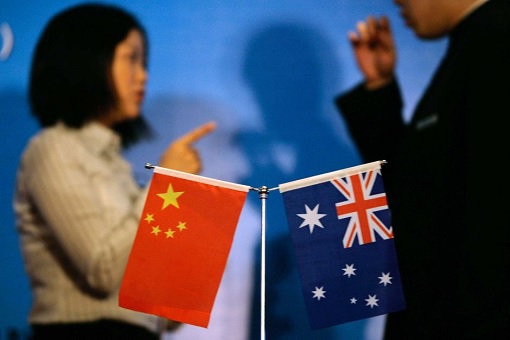
However, the main reason Australia managed to enjoy a remarkable 29-year of economic growth is none other than China. The Chinese’s voracious appetite for its commodities, such as iron ore and coal, not to mention tourism, had driven Australia’s economy to unbelievable growth. While the Covid-19 pandemic was an unavoidable factor, there’s one huge mistake that Australia did.
Canberra picked a fight with Beijing, Australia’s biggest trading partner. As the U.S.’ “deputy sheriff” in the Asia-Pacific region, Australia has strongly, deliberately campaigned for an international inquiry into the origins of the Coronavirus in April which infuriated the Chinese government. Beijing has mocked Canberra of parroting the U.S. in its call for the inquiry.
In May, China began what appeared to be its attacks against Australia by suspending imports from four major Australian beef suppliers for 30 days, allegedly over labelling issues. Then, the Chinese slapped an 80.5% tariff on all Australian barley grain. Later, Beijing moved on to escalate the trade tensions by imposing new customs inspection procedures on Australian iron ore imports.
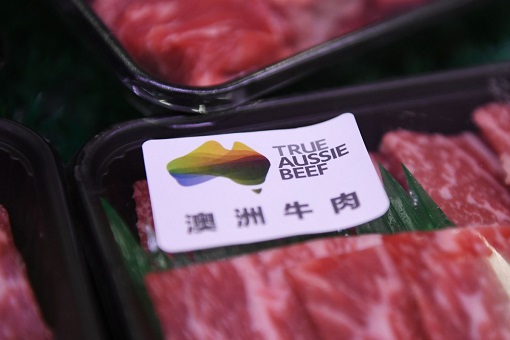
Obviously, it was a declaration of trade war against the Aussie. In fact, Global Times, a mouthpiece for Beijing, warned that China has the power to hurt the Australian economy, but won’t fire the first shot in a trade war. Yet, Australian Agriculture Minister David Littleproud played down the tension, insisting that his country would not seek a tit-for-tat retaliation against China.
It’s not hard to understand why Australia dared not and could not retaliate. China is its biggest trading partner – about one-third of “the land Down Under” total exports go to the Chinese, contributing A$135 billion annually and providing thousands of jobs. The Aussie’s iron ore export to China in 2018-19 was worth a jaw-dropping A$63 billion, not to mention A$17 billion of natural gas and A$14 billion of coal.
As the world’s biggest consumer of beer, China is the largest export market for Australian barley. The Chinese imported over 2.5 million tonnes of Australian barley in 2018-19 – more than half of Australian total barley exports. Hence, the 80.5% tariff on all Australian barley grain would cost the industry a whopping A$500 million per annum. That’s A$2.5 billion over the next 5 years as imposed by Beijing.
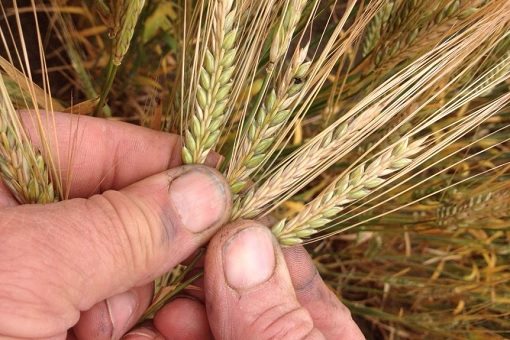
To make matters worse, some Australian farmers are addicted to China because it pays high prices for specially-bred types of barley especially for the Chinese market. That dependency means the farmers are at the mercy of the Chinese. Australia also earned A$9.5 billion alone in beef export, followed by non-beef meat (A$5.2 billion), wool (A$3.8 billion) and wheat (A$3.7 billion).
But China was not done in punishing Australia. The next month (June), Beijing targeted the country’s tourism and education sectors. Chinese tourists were advised to stay away from Australia. The travel warning might seem harmless because Australian borders remained closed to visitors since the Covid-19 outbreak. However, the pain could be excruciating.
According to the Australian Bureau of Statistics figures, 1.4-million (1,458,500) Chinese tourists visited Australia in the 12 months between December 2018 and November 2019, generating a cool A$12 billion a year in revenue. In essence, a ban would hit Australia’s hotels, restaurants, tourism operator and popular attractions to the tune of A$1 billion – every month.
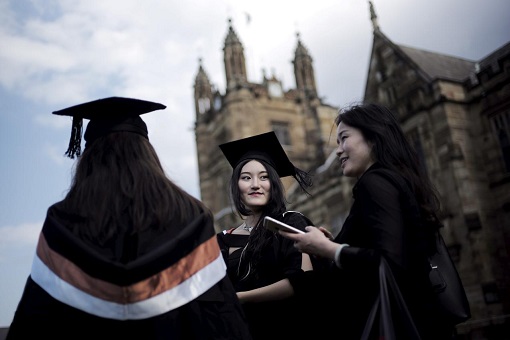
In the same month, armed with “racist attacks against Asians” mantra, Beijing warned its students to reconsider plans to study in the country. The threat would punch a hole in the Australian’s A$37.6 billion education business. That is on top of a new modelling revealed by the Australian university sector that showed it will lose up to A$16 billion by 2023 due to the impact of Coronavirus.
Canberra’s refusal to retaliate has emboldened Beijing to continue its onslaught on the country. In August, China began a second investigation into imports of Australian wine, just after announcing a separate “anti-dumping” inquiry into its wine industry 2 weeks earlier. Beijing wanted to impose an anti-dumping tariff of 202.70%, which would triple the price of Australian wine.
China does not need Australia’s wine, but the same cannot be said about Australian wine growers. The move could result in tariffs, potentially crippling Australian wine exports to China which are worth A$1.2 billion a year. This time, Beijing wanted to punish Australia for criticizing the new Hong Kong security law. Still, Beijing wasn’t done with Canberra – far from it.
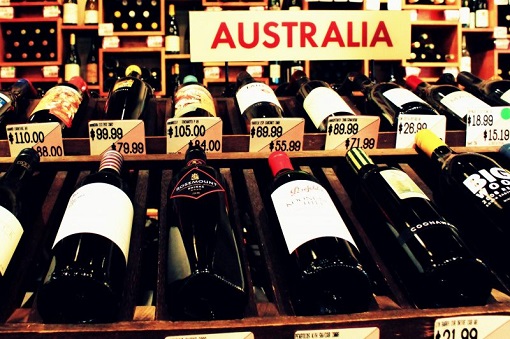
On Friday (Oct 16), Australian producers said China has started targeting its cotton industry, which is worth more than A$2 billion. Cotton Australia and the Australian Cotton Shippers Association said they were disappointed to learn of the latest Chinese action – “Our industry’s relationship with China is of importance to us and is a relationship we have long valued and respected.”
Australia has been exporting cotton to China for decades and the commodity is one of Australia’s top agricultural exports to China. In good seasonal conditions Australian cotton exports can be as high as A$2.5 billion a year, with most of the earnings coming from China. Cotton Australia CEO Adam Kay said – “About 65% of our crop goes to China, so they’re very important to us and we’ve built that relationship up.”
China actually had a “first come, first serve” annual quota of about 890,000 tonnes of imported cotton, which Australia and other nations competed to supply. However, the latest instruction from Beijing to “discourage” its spinning mills from using Australian cotton would mean competitors India, Brazil and even the U.S. will be given the privilege to take up the entire quota.
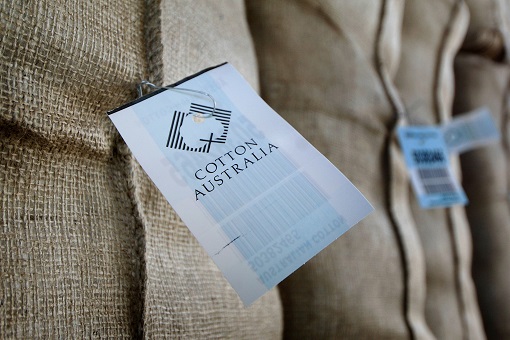
As China accounted for about two-thirds of Australian cotton exports, they might have no choice but to sell at a lower price elsewhere – if they can find new buyers. The latest attack on Australian cotton came less than a week (Oct 12) after China’s customs authorities told local steelmakers and power plants to stop importing Australian coal, dealing a blow to the A$14 billion industry.
Under pressure, Australian Agriculture Minister David Littleproud said his country wants dialogue with China to resolve their trade dispute and clear up any misunderstandings with its largest trading partner – suggesting that Australia is in serious trouble. Not many were impressed with how Prime Minister Scott Morrison tackles the China-Australia disputes.
Sir Angus Houston, the former Australian defence chief, declared that China was Australia’s partner – not an enemy – as he accused some politicians of engaging in “loose talk” that had helped drive the relationship between Canberra and Beijing to “a very low point”. Houston appeared to be lecturing the Morrison administration when he said Australia needed China to aid its economic recovery from the Covid-19 recession.
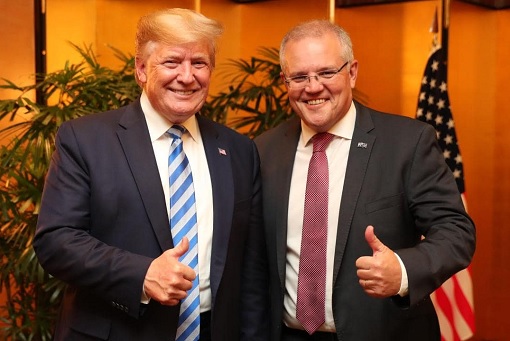
Houston, blaming PM Scott Morrison, Foreign Minister Marise Payne and Trade Minister Simon Birmingham, said – “I think our relationship at the moment is at a very low point. We need to take a hard look at our relationship with China, I think we need a reset, we need a circuit breaker, because really if we’re going to come out of this recession that we have at the moment because of Covid-19, we need China.”
Other Articles That May Interest You …
- Coronavirus Inquiry Backfired On Aussie – China Slaps Tariffs, Warns It Has The Power To Hurt Australia Economy
- Lawsuits For Trillions Of Dollars Against China Over Spread Of Coronavirus – Here’s Why It’s A Waste Of Time
- 22 Million Jobless – Desperate Trump Blames China & Declares Worst Is Over, Despite Coronavirus Deaths Hit New Record
- IMF – The “Great Lockdown” Is Set To Triggers The World’s Worst Recession Since The 1929 Great Depression
- 3 Coronavirus Variants Discovered – Surprisingly, “Type-A” Found In Americans, Wuhan’s Type-B And Type-C In Europe
- China Appears To Be Winning The Coronavirus War, And Other Countries Are Studying How The Chinese Did It
- Arabs Conspiracy Theories – Coronavirus Is The U.S. & Israel Biological Warfare To Cripple China’s Economy & Reputation
- National Security Threat – China’s Huawei & ZTE “5G Technology” Banned In Australia
- Corruption In Australia? – Huawei The Biggest Sponsor Of Australian Politicians

|
|
October 17th, 2020 by financetwitter
|


|

|

|

|

|

|
Comments
Many (not all) Australians are white racists who look down on Asians. At least one of my friend was spit on while studying in Australia. Why would anyone want to go to school there? The education there is a joke when compared to other Asian countries, including China.
Recession?!
No worries, Mate!
Keep kissing Trump’s behind, and winding up China, see what else happens when China shoves barley and cotton up yours!
Ye reap what ye sow antagonising China – cotton-pickin’ stupid idea!
And ye reaped a lot of unsold barley and cotton, eh?!
Good job you ain’t got palm oil and durian too, you’ll end up looking a bit like Malaysia too!
ohhh i see, so u guys mean Australia is bold enough just because they are kissing Trump’s ass hard enough…well, lets pray hard too tht Trump will still be in charge for next administration. Singapore had a good experienced from tht.
And so those tariff and major export goods will be absorb good by Americans too ha… ok. Lets see how the situation goes…
Replying to Robert:
AU runs a trade defict with the US but has trade surplus with China
Have a peruse in link to see where AU’s trade of 28% is with China relative to 7% with the US.
https://www.aph.gov.au/About_Parliament/Parliamentary_Departments/Parliamentary_Library/pubs/BriefingBook45p/AustraliaTrade
And this: JAMES LAURENCESON. Reality check on finding new export markets: China’s demand dwarfs the rest (SMH 28.5.20)
https://johnmenadue.com/james-laurenceson-reality-check-on-finding-new-export-markets-chinas-demand-dwarfs-the-rest-smh-28-5-20/
johnmenadue.com an AU site offers excellent views not published by the likes of theage smh the australian etc; views by former diplomats, analysts, professionals ….
Australia’s sterling record as the global leader in human rights and anti-racism needs to be maintained”
True!
So does the sport of Ambo-bashing.
Sometimes substituted or supplemented by bashing of brown folks from the Indian subcontinent, Samoa, Tonga, Chinese, well, anyone not white, really.
I vote taking on China on the side of the Yanks, Australia had a good record dying for them overlords in Vietnam.
Not to forget slaving away for them Yanks, murdering and torturing Afghans…
Best take on them Chinese before they produce a nice recession for Oz, all ye Edna Everidges and Croc Dundee Brit-dumped convicts!






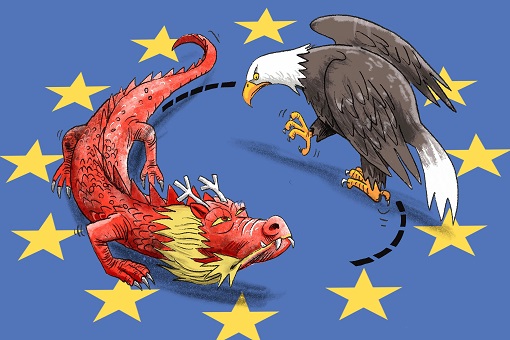





















Whatever you said is not true because Australia’s best trading partner is the US. Whatever trade losses with China is really a small price to pay, for Australia to show it’s got real backbone to stand up to China, human rights abuse and racism. Australia’s sterling record as the global leader in human rights and anti-racism needs to be maintained. Scott Morrison is the best Australian prime minister ever. He was spectacular to support Eric Abetz in the latest tiff. Kevin Rudd is shameful. Australia’s future is definitely on the US side. Go Australia!